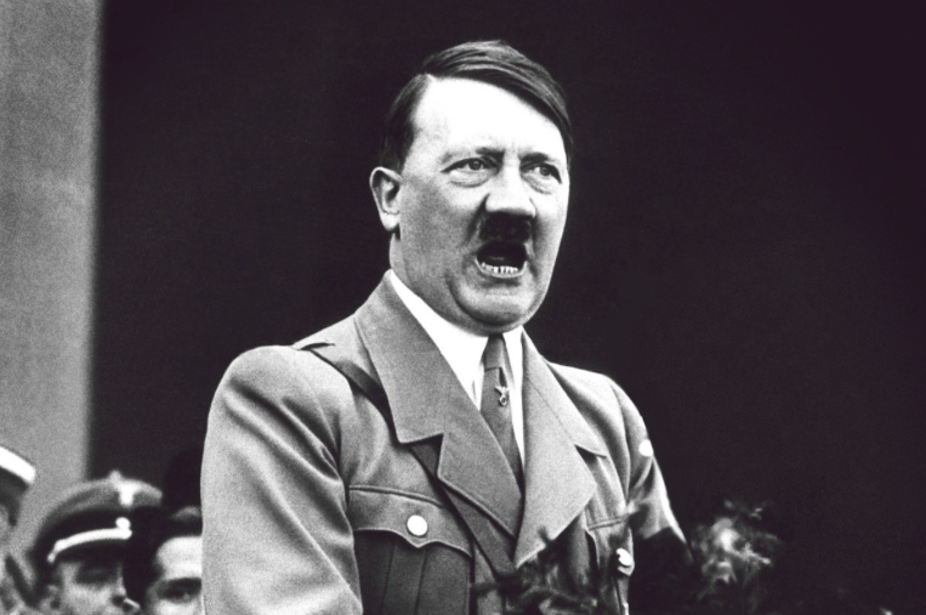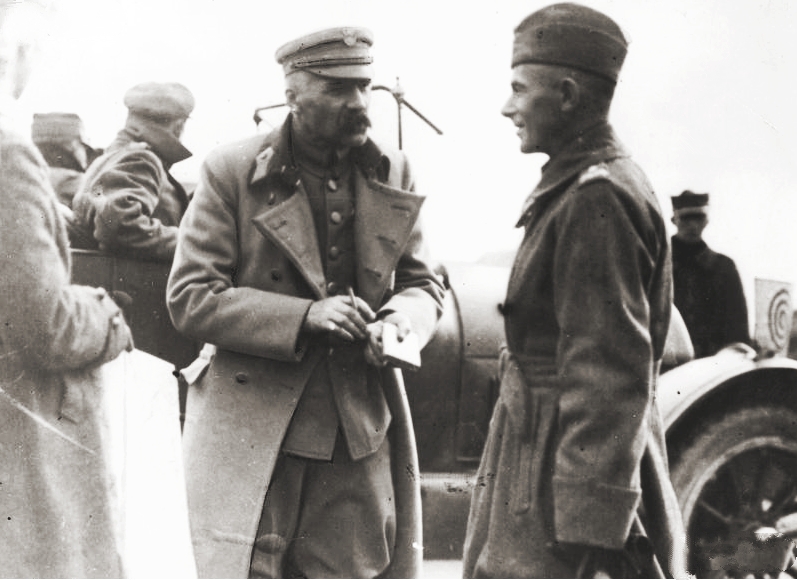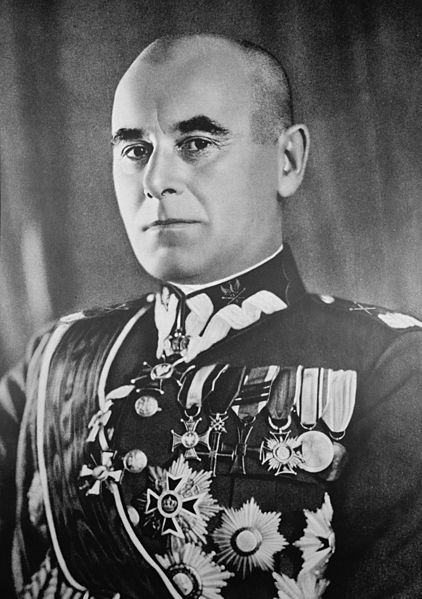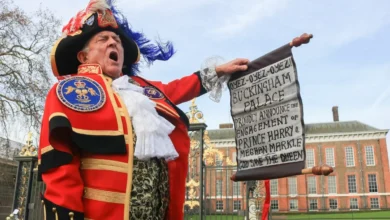Hitler Was a British Agent: Rothschild Zionists Funded Both Hitler & Churchill

As regular readers well know by now, the ultimate culprits behind the disaster of World War II were the high-level masters of the New World Order crime gang (Rothschild, Rockefeller, Sulzberger, Baruch et al), and their skilled operational henchmen of the political world (FDR, Churchill, Daladier, Stalin et al). By the way, this is the same self-perpetuating crime syndicate now agitating for confrontation against Syria, Iran and ultimately Russia and China. Same game; new players, long story.
But the one thing this dirty gang could never have accomplished by themselves was to trigger the actual war. As even the most geographically illiterate Boobus Americanus or Boobus Europithicus should know, neither the US, nor the USSR, and nor the UK shared a common border from which to make mayhem against Hitler’s Germany.
France does share a border with Germany, but when Hitler permanently renounced any claims to the disputed Alsace-Lorraine region in 1935, a possible flash-point between the two rivals was diffused forever.
Another potential trigger was diffused in 1938 when the Munich Agreement – since dubbed by propagandists and ignoramus parrots alike as “Neville Chamberlain’s appeasement” – fairly settled the German-Czech dispute to the mutual benefit of Czechs, Slovaks and Germans.
Nor was Germany bound to any dangerous entangling alliances, as it had been prior to World War I when the Reich was committed to fight alongside Austria-Hungary after the Russians and French began mobilizing against that nation.
Unfortunately,neither Daladier nor Chamberlain would be strong enough to hold back the continued pressure from the warmongering factions around and above them.
In November of 1938, the U.S. mid-term Congressional elections dealt a crushing blow to Franklin Delano Roosevelt’s Democrat Party. With America still reeling from the decade-long Great Depression, absent some foreign “crisis”, it appeared that the failed two-term President would not be able to seek a third term (He ultimately held office until his death in 1945). It should be noted that at this hard time in American history, prosperous Germany was enjoying full employment, a strong currency, the Autobahn, the Volkswagen, and a happy reconciliation between labor and the entrepreneurial class. But I digress.
Even the claims of Jewish persecution in Germany were no longer valid. Though the dominant Jewish elite had in large measure been stripped of high positions in finance, press, government, law and academia, the truth was, the 330,000 Jews who remained in Hitler’s Germany were unmolested and actually quite prosperous. Indeed, after anti-Jewish riots broke out following the 1938 Paris murder of a German diplomat by a deranged Polish Jew, it was Hitler himself who, via Goebbels, immediately issued an Emergency Order for the anti-Jewish violence (since exaggerated in scope) to cease.
And so, by 1939, the New World Order crime syndicate and the British & French chauvinists had nearly run out of all options and all propaganda pretexts for instigating another war against peaceful and prosperous Germany, as they had done in 1914. The last hopes for starting the war to re-enslave Germany rested on the shoulders of one man, and one man only. His name was Edward Smigly-Rydz; the criminal fool who started World War II. As is to be expected, his name is virtually unknown outside of Poland. It’s high-time this dirty, rotten, ego-maniacal scoundrel gets the posthumous “credit” he so richly deserves.

After Germany was essentially tricked into laying down her arms and surrendering during World War I, its west Prussian territory was carved out, given to the new state of Poland, and, for the most part, “ethnically cleansed” of Germans. The German port city of Danzig was declared a “free city” and forbidden from rejoining Germany. East Prussia remained part of Germany but was left isolated from the mainland. This illogical and immoral configuration, and the anti-German abuses which were to take place within the “Polish Corridor”, would serve as the perfect trip-wire for setting off a new war against Germany.
A Tale of Two Marshals

Born and known as Edward Rydz, the young army commander served in the Polish legions of Austro-Hungarian Empire during World War I. He later became one of the leaders of a Polish independence movement that sought to establish a Polish state carved from the Polish majority areas of Austria-Hungary and Russia. Smigly, by appointment of Marshal Jozef Pilsudski, became commander of the Polish Military Organization and adopted the ’nom de guerre’ of “Smigly” (Fast or Agile). He later added ’Smigly’ as an integral part to his surname, which tells us something about his ego. His self-promoting renaming is similar to that of Loseb Jugashvili, who later took the name “Stalin” – Man of Steel.
As a Brigadier, Smigly commanded armies during the Polish-Soviet War which followed World War I. The treaty which ended that war, the Peace of Riga, divided the disputed territories between the relatively new state of Poland and the new Soviet Union (fka Russian Empire).
Marshal Pilsudski would go on to become Poland’s head of State until his death in 1935. It is important to note that Hitler and Pilsudski were on good terms. Pilsudski had actually congratulated Hitler on winning the 1933 elections, and the German-Polish Non-Aggression Pact was signed just 10 months after Hitler came to power. According to the Pact, both countries pledged to resolve their problems through bilateral negotiations and to forgo armed conflict.
Just before his death, Pilsudski re-emphasized that Poland should maintain neutral relations with Germany. The death of Pilsudki proved to be a great loss for Germany – a fact which Hitler himself expressed during the closing days of World War II.
A Dictatorship Without a Dictator

Following Pilsudski’s death, Smigly-Rydz became General Inspector of the Armed Forces. From that point on, Smigly was rapidly elevated. In 1936, he was awarded the title of “Second Man in the State after the President”, by the Polish prime minister. Later that year, he was promoted to the rank of Marshal of Poland. Smigly’s carefully crafted image as Pilsudski’s anointed successor alienated many of Pilsudski’s supporters, who saw him as a shameless self-promoter.
The period of Smigly’s rule, 1935–39, was often referred to as “a dictatorship without a dictator”. But he lacked the moral authority of the beloved Pilsudski and many Poles were divided over their new de-facto dictator; with more than a few hating him outright. The Smigly regime became increasingly authoritarian. This was illustrated by the creation of the Ozon movement, whose objective was to build a popular mass movement that would transform the tin-pot dictator into “Poland’s second great leader” (after Pilsudski himself). Several of Poland’s senior politicians made a point of distancing themselves from this phony “grass-roots” cult movement.
In addition to being authoritarian, and not all that popular among his own people, the pompous Marshal had grandiose delusions of restoring the old Polish Empire of 1569-1795, in territories which had long since been devoid of Polish inhabitants (Baltic States, Ukraine, Belarus, Czechoslovakia and Prussian Germany). To that end, Smigly’s gang embarked on a campaign of aggressive intimidation and forced annexation.
Smigly-Rydz Strong-Arms Lithuania & Czechoslovakia
n March of 1938, Smigly issued an ultimatum to the tiny Baltic State of Lithuania. Lithuania had refused to have any diplomatic relations with Poland after 1920, protesting the annexation of the Vilnius Region by the new Polish state. The ultimatum demanded that Lithuania unconditionally agree to establish diplomatic ties with Poland within 48 hours, and that the terms be finalized within two weeks. The establishment of diplomatic relations would mean a renunciation of Lithuanian claims to the region containing its historic capital, Vilnius.
Tiny Lithuania, preferring peace to war, accepted bully-boy Smigly’s ultimatum and conditions. Had Lithuania stood firm, it’s quite possible that Stalin would have used the ensuing war as pretext to take the Baltic States (which he eventually did in 1940) and start the 2nd Polish-Soviet war. Such was the recklessness of Marshal Smigly.
Many in the “democratic” West, including, ironically, the anti-German New York Times, expressed dismay over Poland’s militaristic bullying of Lithuania; a development so dangerous that it caused jitters among Wall Street investors. (here) But in the end, it was generally understood that Poland would be needed for bigger things, so the West “held its nose” and tolerated Smigly’s antics.
Later that same year, Smigly made a similar bold move against the Czech government when he took advantage of the Sudetenland Crisis to demand a portion of Zaolzie and some other smaller areas. The Czechs were powerless to stop the forced annexations. Again, the “democratic” West shook its head in dismay, but held its tongue.




